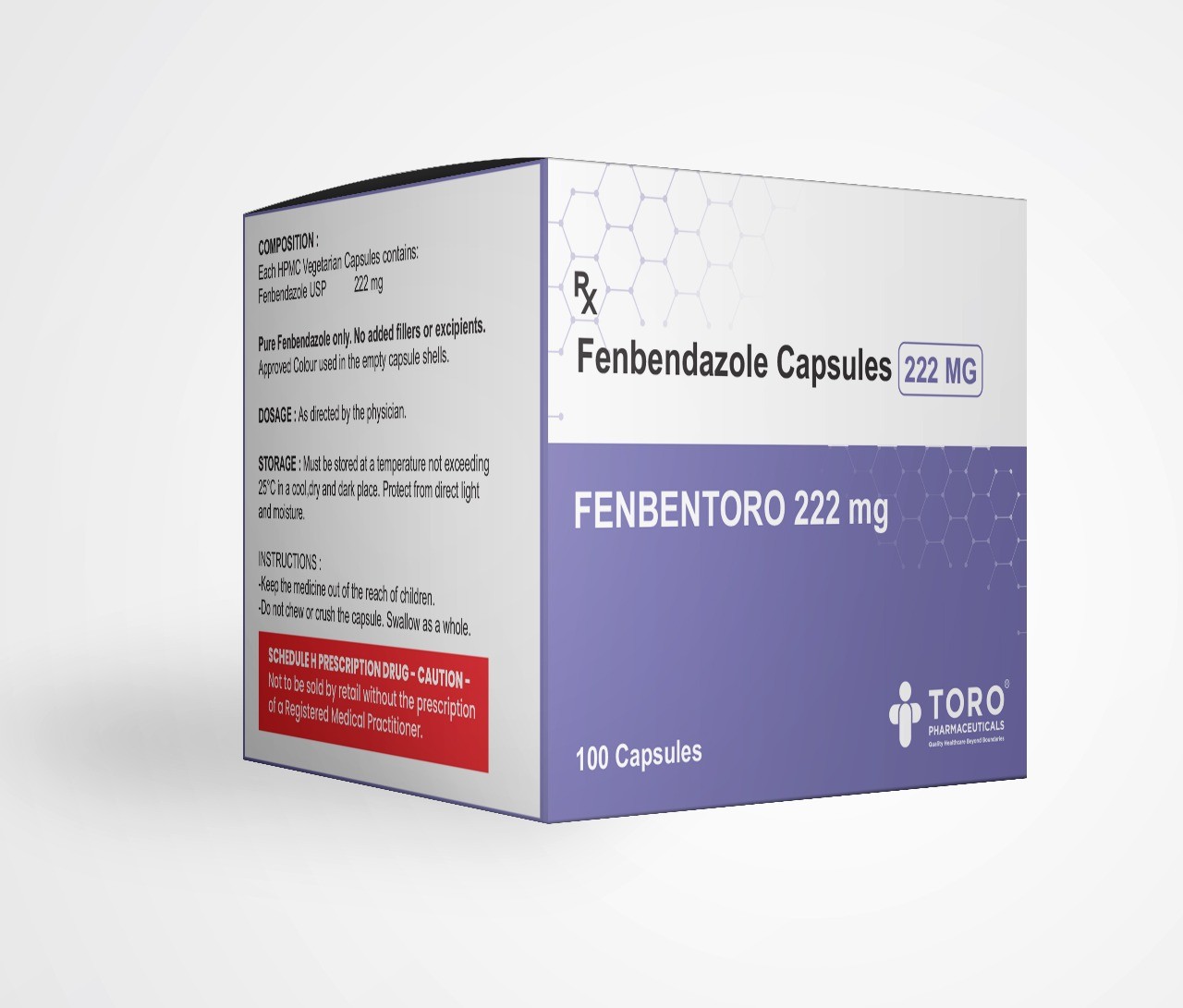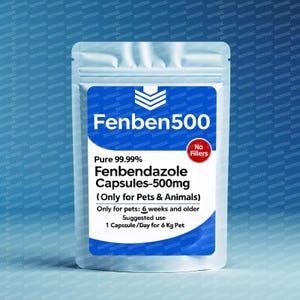Checking out the Mechanisms Behind Fenbendazole and Its Effect On Pet Health
Fenbendazole is an extensively used anthelmintic understood for its effectiveness versus numerous parasites. Its key mechanism includes the inhibition of microtubule development, which interferes with crucial processes in these microorganisms. Past its antiparasitic residential or commercial properties, fenbendazole likewise shows up to improve immune actions and has anti-inflammatory benefits. Comprehending these diverse impacts might expose brand-new applications for animal health. Nevertheless, inquiries remain regarding its complete possibility and safety account.
The Pharmacokinetics of Fenbendazole
The pharmacokinetics of fenbendazole, a commonly made use of anthelmintic in vet medicine, involves the study of its absorption, circulation, metabolic process, and excretion within animal systems. After administration, fenbendazole is rapidly absorbed from the stomach system, with peak plasma focus happening within hours. Its distribution is influenced by variables such as tissue binding and lipid solubility, allowing it to permeate numerous cells effectively. The medication goes through extensive metabolism mostly in the liver, where it is transformed right into active and inactive metabolites. These metabolites contribute in the medicine's total effectiveness and security profile. Discharging happens primarily with feces, with a smaller percentage gotten rid of through urine. The half-life of fenbendazole varies amongst species, which influences dosing routines. Recognizing these pharmacokinetic residential or commercial properties is essential for maximizing its therapeutic use and guaranteeing effective bloodsucker control in vet methods.
Devices of Action Versus Parasites
Fenbendazole applies its antiparasitic effects largely through the inhibition of microtubule development in parasites. This disruption influences their structural integrity and mobile functions, bring about impaired basal metabolism. Because of this, the medicine efficiently endangers the survival and reproduction of different parasitical microorganisms.
Inhibition of Microtubule Development
Restraint of microtubule formation stands for a crucial device whereby specific anthelmintic representatives, consisting of fenbendazole, apply their effects on bloodsuckers. Fenbendazole binds to tubulin, a protein that creates microtubules, interrupting the polymerization process needed for microtubule assembly. This disturbance impairs essential mobile functions, consisting of mitosis, intracellular transport, and structural honesty. As microtubules play a critical duty in keeping the shape and feature of parasitical cells, their inhibition leads to cell cycle apprehension and eventual fatality of the parasite. This device is especially reliable versus nematodes, as their reliance on microtubules for movement and nutrient absorption makes them prone to fenbendazole. The restraint of microtubule development is a vital facet of fenbendazole's therapeutic efficiency in veterinary medication.
Interruption of Power Metabolism
Interfering with energy metabolic rate is one more important mechanism whereby fenbendazole targets parasitical microorganisms. This anthelmintic alters the energy production paths within bloodsuckers, mostly affecting their capacity to create adenosine triphosphate (ATP) By hindering sugar uptake and disrupting mitochondrial function, fenbendazole limitations the power sources essential for the survival and recreation of these microorganisms. Therefore, bloodsuckers end up being significantly at risk to ecological stress and anxieties and immune feedbacks. In addition, the disturbance in basal metabolism not only influences the bloodsuckers straight yet likewise minimizes their capability to absorb nutrients, additionally impairing their development. Generally, the disruption of basal metabolism stands for a fundamental facet of fenbendazole's efficacy versus various parasitic infections, adding significantly to boosted pet health end results
Prospective Side Effects and Safety And Security Profile
The potential negative effects and safety and security profile of fenbendazole warrant mindful consideration, especially in vet applications. While generally considered as risk-free, some animals might experience unfavorable reactions, including intestinal disruptions such as vomiting and looseness of the bowels. Additionally, neurological signs, although uncommon, have been reported in sensitive people, highlighting the need for tracking throughout therapy.

Fenbendazole's security in numerous varieties, including canines and felines, has actually been recorded, yet dose and duration of treatment need to be meticulously taken care of to minimize dangers. Expectant or lactating animals might also need special interest, as the results on developing unborn children or nursing children are not totally understood.
Regular vet appointments can aid mitigate prospective adverse effects and guarantee the drug is carried out suitably. While fenbendazole is a reliable anthelmintic agent, alertness concerning its side impacts is vital for maintaining pet wellness.
Fenbendazole's Influence on Immune Function
Fenbendazole has actually been noted for its potential to regulate immune system responses in pets. Its anti-inflammatory buildings might contribute to boosted immune function, providing a twin benefit in managing wellness (fenbendazole 222). Understanding these results is vital for evaluating fenbendazole's duty in veterinary medication
Immune System Inflection

Anti-inflammatory Qualities
Anti-inflammatory results represent a substantial facet of fenbendazole's influence on immune function. Study shows that fenbendazole might lower the manufacturing of pro-inflammatory cytokines, which are crucial in moderating inflammatory reactions. By modulating these cytokines, fenbendazole can potentially minimize inflammation-related conditions in animals. This anti-inflammatory action not just help in managing symptoms related to numerous illness however also boosts total body immune system effectiveness. Furthermore, its ability to promote a well balanced immune action assists avoid excessive inflammatory damages, which can cause chronic wellness concerns. Consequently, fenbendazole's role in swelling administration highlights its importance in vet medicine, giving a double benefit of antiparasitic action and immune system assistance for pet health.
Applications Beyond Conventional Parasitical Infections
While mostly recognized for its efficiency against various parasitical infections, fenbendazole has amassed interest for possible applications beyond this traditional extent. Recent researches suggest that fenbendazole might have helpful impacts on cellular wellness and immune response, making it a fascinating prospect for managing various other health conditions in pets. Its reported anti-inflammatory buildings might give relief for animals experiencing from chronic inflammatory illness. In addition, some study shows that fenbendazole could contribute in sustaining the overall wellness of animals by improving Visit This Link nutrient absorption and gastrointestinal health. Its potential as an accessory therapy in cancer cells therapy has triggered interest, as preliminary searchings for suggest it may inhibit growth cell growth in particular contexts. These varied applications highlight fenbendazole's versatility, encouraging more expedition right into its complex advantages for pet health and wellness beyond its conventional use as a deworming representative.
Future Study Instructions and Effects for Pet Health And Wellness
The exploration of fenbendazole's potential applications has opened brand-new methods for research focused on enhancing pet wellness. Future research studies might concentrate on its performance against a wider variety of pathogens, including microorganisms and viruses, thus expanding its duty in vet medicine. The implications of fenbendazole's systems, such as its effect on immune modulation, warrant better examination to understand just how it can bolster total health and wellness in various varieties.
Furthermore, research might explore ideal does and formulations to make best use of effectiveness while minimizing possible adverse effects. Investigating fenbendazole's collaborating effects with various other medicines might result in extra reliable therapy protocols. Longitudinal researches examining long-lasting end results in animals treated with fenbendazole could supply valuable understandings right into its safety and efficiency. Overall, the ongoing exploration of fenbendazole supplies appealing potential to enhance animal wellness, requiring a collaborative approach amongst researchers, vets, and pharmaceutical developers to facilitate improvements in this field.
Regularly Asked Concerns
Can Fenbendazole Be Made Use Of in Livestock for Parasite Avoidance?
The inquiry of whether fenbendazole can be utilized in animals for bloodsucker prevention is appropriate, as producers seek efficient therapies (fenbendazole 444). Study indicates it may supply advantages, but proper standards and vet guidance are vital for risk-free usage
What Is the Advised Dose of Fenbendazole for Different Pets?

Are There Any Kind Of Recognized Medicine Communications With Fenbendazole?
Present understanding indicates that fenbendazole might connect with specific medications, potentially affecting their effectiveness or metabolic rate. Vet professionals suggest speaking with a veterinarian to assess specific pet cases and determine any kind of feasible interactions prior to management.
How Does Fenbendazole Compare to Various Other Antiparasitic Medicines?
Fenbendazole is typically compared to various other antiparasitic medications based upon efficacy, spectrum of task, and safety accounts. It is favored for its effectiveness versus a variety of bloodsuckers while typically exhibiting marginal adverse effects in pets.
Is Fenbendazole Effective Versus Viral or Bacterial Infections in Pets?
The efficiency of fenbendazole against viral or bacterial infections in animals continues to be unverified. Research mostly focuses on its antiparasitic residential properties, with limited proof sustaining any kind of function in treating non-parasitic infections in vet medication.